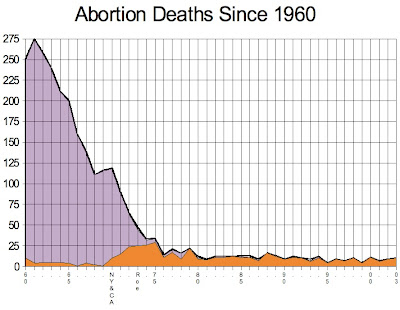Betty Hines was 21 years old when she was checked into Doctors Hospital in California for a safe, legal abortion to be performed by Dr. A. Mitchell on July 19, 1971. Mitchell had been her physician for three or four years. Betty was eight weeks pregnant. There didn't seem to be anything wrong during the procedure. Betty was transferred to the recovery room, when she suddenly went into cardio-respiratory arrest.
Mitchell theorized that perhaps Betty had died because of a bad vial of Inovar, because the next patient who was injected from that vial also went into cardiac arrest but was successfully resuscitated. Betty's autopsy, however, found no trave of Inovar in her system. A toxicology check was also done on the vial of medication, and found nothing wrong with the Inovar. Betty's death was attributed to massive intravascular sickling due to underlying sickle cell disorder. Other women who died of sickle cell crisis triggered by abortion include Margaret Davis and Barbara Hoppert.
Carmen Rodriguez was 31 years old when she underwent a 14-week saline abortion at Lincoln Hospital in New York City. She had a history of rheumatic heart disease and two previous live births. After the saline was injected, it got into Carmen's blood stream. This caused acute pulmonary edema -- fluid accumulation in the lungs -- and Carmen went into a coma from which she never recovered. She died on July 19, 1970, leaving behind a husband along with her children.
After Carmen's death, a militant Puerto Rican group, The Young Lords, swung into action. They pointed out that doctors at Lincoln Hospital knew that Carmen had heart problems and failed to take proper precautions. The Young Lords distributed leaflets in the neighborhood of the hospital, denouncing Carmen's death as "murder". For 12 hours, the group occupied an administration building connected with the hospital, denouncing the hospital as "a butcher shop that kills patients".
Merle Goldman, spokeswoman of an abortion advocacy organization, did not share The Young Lords' outrage. Ms. Goldman said she hoped that Carmen's death wouldn't deter other women from undergoing abortions. She touted abortion's reputed safety and stressed that her group was lobbying against proposed health department regulation of abortion practice. New York City Chief Medical Examiner Milton Helpern, on the other hand, expressed concern that ill-equipped and poorly-staffed freestanding legal abortion facilities were posing a danger to women.
As you can see from the graph below, abortion deaths were falling dramatically before legalization. This steep fall had been in place for decades. To argue that legalization lowered abortion mortality simply isn't supported by the data.

No comments:
Post a Comment